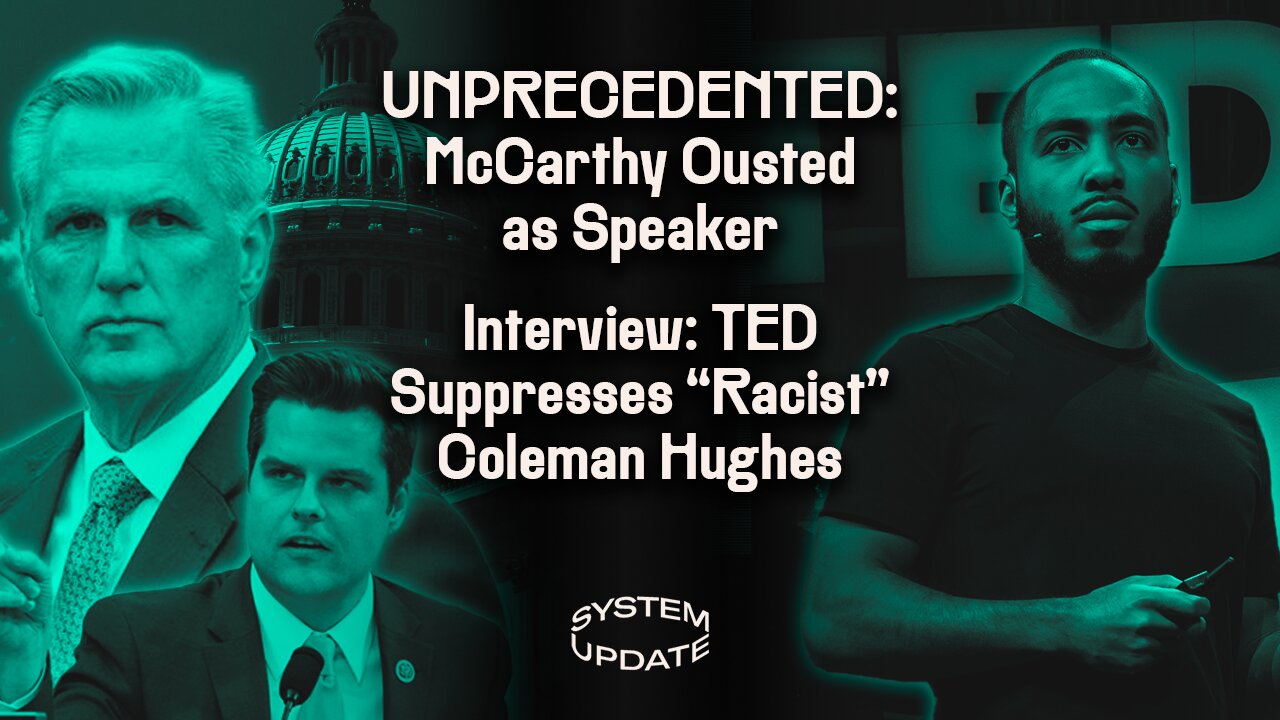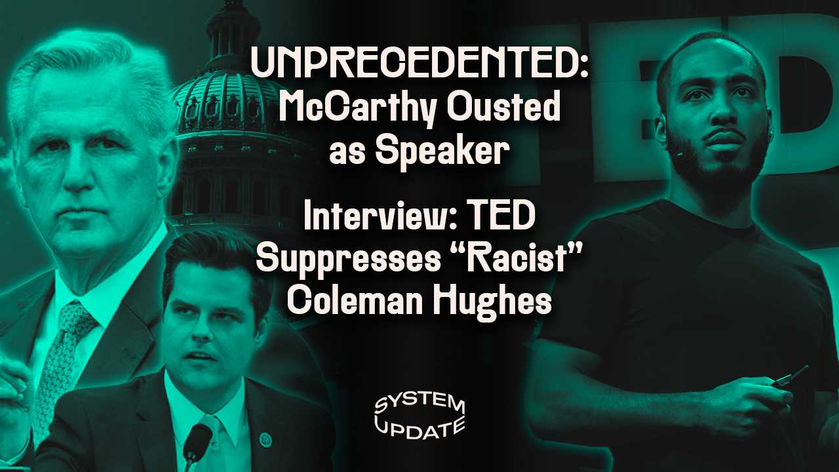Watch the full episode here:

Good evening. It's Tuesday, October 3.
Tonight: Kevin McCarthy becomes the first speaker of the House – the first in U.S. history – removed by a vote of the House. Florida Congressman Matt Gaetz yesterday filed a so-called Motion to Vacate against McCarthy, which requires the full House to vote on whether to remove the speaker. No such motion has ever previously succeeded – until today – when the House voted in favor of Gaetz's resolution by a vote of 216-210.
All 208 Democrats voted to remove McCarthy, which is not a surprise – he’s a Republican House speaker and they’re Democrats – and when 7 other House Republicans in addition to Gaetz voted in favor of the motion, McCarthy was immediately removed as of the conclusion of the vote. Four House Republicans, along with four House Democrats, did not vote. The House session was gaveled closed by McCarty's closest lieutenants, Congressman Patrick McHenry of North Carolina, who was automatically anointed acting speaker. He is not expected to remain in that position. There will be a new speaker chosen.
Although McCarthy's removal shocked Washington – again, it's the first time it ever happened in U.S. history – this move has been long in the making. McCarthy barely was elected speaker back in January only on the 15th ballot – the most protracted battle for speaker of the House in 164 years. And it was Gaetz who led a somewhat larger group of populist/conservative members – back then it was around 20 or so – who refused to vote for McCarthy until they extracted a wide range of concessions that made power in the House more dispersed and equitable than it had been in years, since the days of Paul Ryan and Nancy Pelosi, both of whom, as speakers, consolidated previously unprecedented power in the House.
But unlike the Democratic Party – which just this week AOC boasted was "running like a well-oiled machine": meaning they march in unanimous lockstep - there is substantial internal debate and dissent with the Republican Party. That internal conflict never really went away after McCarthy was finally elected, and the anger toward him – and, more broadly, toward the establishment way of doing business in Washington – exploded over the last several weeks as McCarthy approved massive spending and debt to avoid a government shutdown, and negotiated a secret deal with Democrats to ensure ongoing funding for Ukraine after Republicans lacked the votes on their own to vote for it. We'll break down and analyze this breaking news tonight because it illustrates so many of the key dynamics, currents and conflicts in Washington.
Then: Coleman Hughes is one of the most thoughtful and independent-minded analysts of a wide range of political debates, including race and race relations in the U.S. It is presumably for that reason that the TED Foundation invited him to give a TED Talk on that subject. On April 19, Hughes delivered his talk in Vancouver, Canada, and it focused on the need to strive for what he called "color blindness" in all political and social endeavors – he argued, in other words, against the prevailing Western liberal view that racial preferences must be afforded in order to cure race-based and equality, and that instead, we do everything possible to avoid judging one another based on race, and if any programs are needed to cure equality, that it makes far more sense to use class rather than race as the relevant metric.
Unsurprisingly, a group of TED employees, who are overwhelmingly progressive and liberal, objected to Hughes' speech, even going so far as to label it and him "racist." Instead of telling their employees that the whole purpose of TED and its Talks is to spur civil and substantive debate by offering a wide range of views, TED instead began immediately engaging in all sorts of unusual maneuvers in order to suppress his speech – including by requiring him to participate in a debate with those who disagree with him as a precondition to the speech being published and other indignities.
Instead of obeying, Hughes went public with his objections in an article entitled "Why is TED Scared of Color Blindness?" After the publication of that article, TED's chief official, the British entrepreneur Chris Anderson, who has been with Ted for about 20 years, engaged in a series of exchanges with him on Twitter in which he made some remarkable concessions.
We'll examine this controversy for what it reveals about what is – and is not – permitted to be expressed in left-liberal discourse; how even a group founded to foster debates is crippled from allowing dissenting views; and we'll speak to Hughes about his experience and his views of this episode.
For now, welcome to a new episode of System Update, starting now.






















